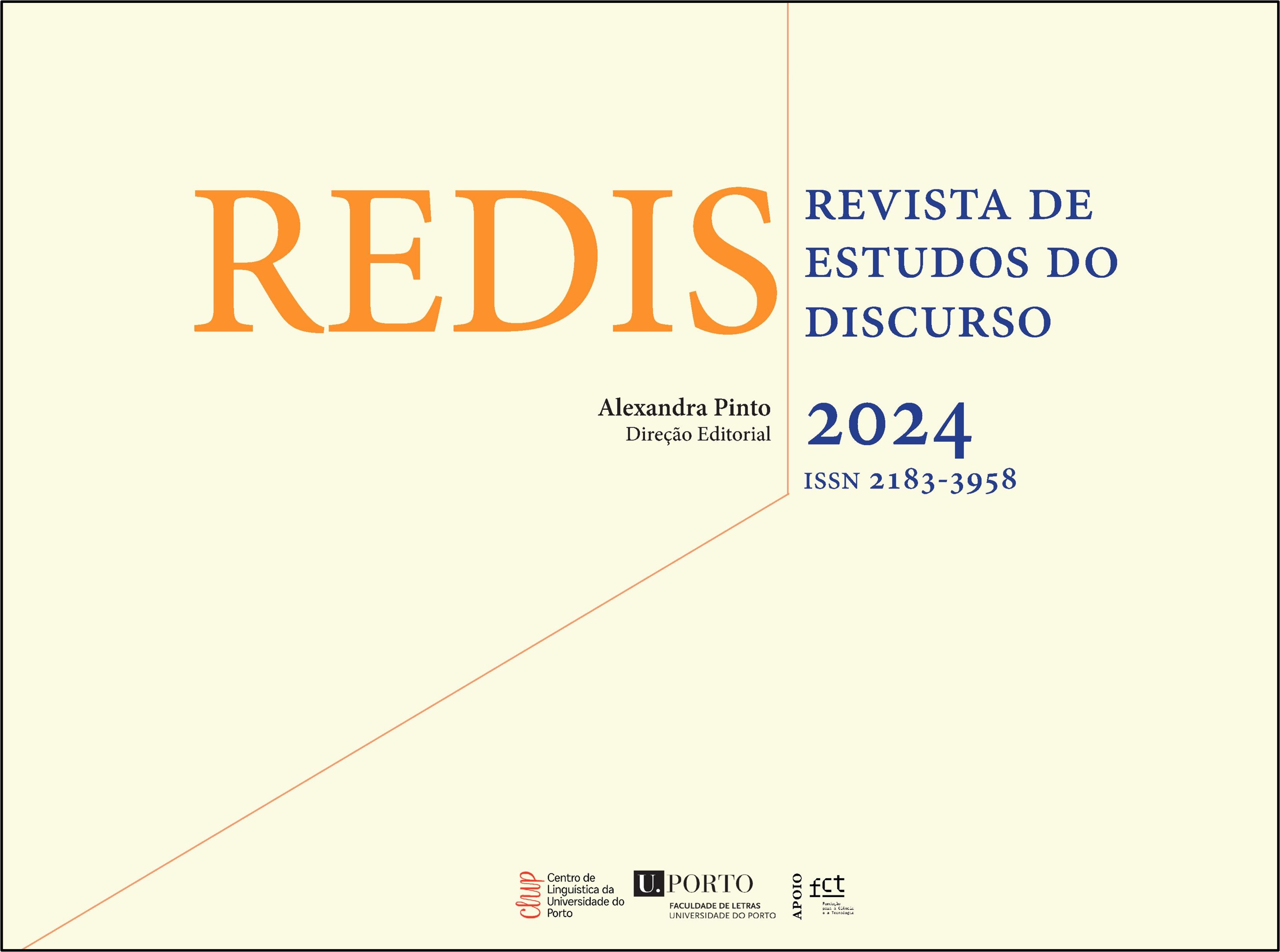Ethos e mídia: estratégias discursivas para a constituição da imagem de si do profissional do jornalismo
DOI:
https://doi.org/10.21747/21833958/red14a4Palavras-chave:
Ethos, Ethos jornalístico, Mídia impressa, Discurso midiáticoResumo
Este trabalho visa analisar algumas estratégias utilizadas pela instância midiática na produção de seu discurso que podem contribuir na constituição de um ethos discursivo do profissional do jornalismo, principalmente na mídia impressa. Para isso, busca-se relacionar os diálogos teóricos acerca da Análise do Discurso, especialmente no que se refere à Teoria Semiolinguística, com alguns conceitos já postulados a respeito do ethos jornalístico no campo da comunicação. A fim de proporcionar uma melhor compreensão das noções teóricas expostas, é proposto analisá-las e exemplificá-las por meio de excertos de textos jornalísticos de jornais impressos brasileiros, produzidos por enviados especiais no exterior. Desse modo, espera-se mostrar que o ethos jornalístico pode estar relacionado a uma busca por um efeito de verdade que se baseia no ideal da verossimilhança com o real, o qual, por sua vez, permeia o imaginário da prática jornalística. Além disso, espera-se que o ethos possa ser associado aos ideais da ética jornalística, que consistem no seu compromisso com a verdade.
Referências
Amossy, R. (2005). Imagens de si no discurso: a construção do ethos. São Paulo: Contexto.
Barthes, R. (1970). L’ancienne rhétorique. Aide-mémoire. Communications, (16), pp. 172-229.
Benetti, M.; Hagen, S. (2010). Jornalismo e imagem de si: o discurso institucional das revistas semanais. Estudos em jornalismo e mídia, 7(1), pp. 123-135.
Berger, C. (1996). Em torno do discurso jornalístico. In: Fausto Neto, A.; Pinto, M. J. (Org.). O indivíduo e as mídias. Rio de Janeiro: Diadorim.
Charaudeau, P. (2006). Discurso das Mídias. São Paulo: Contexto.
Charaudeau, P. (2008). Linguagem e discurso: modos de organização. São Paulo: Contexto.
Corrêa, M. L. G. (2002). Linguagem e Comunicação Social. Visões da lingüística moderna. São Paulo: Parábola.
Correia, J. C. (2009). O ethos jornalístico: da técnica à reflexão crítica. Verso e Reverso: Revista da Comunicação, 23(54).
Filho, C. B. (2003). Ética na comunicação. São Paulo: Summus.
Herman, E.; Chomsky, N. (1988). Manufacturing Consent: The Political Economy of the Mass Media. Nova York: Pantheon Books.
Lessa, C. H. (2002). Metaenunciação e atribuição de ethos a atores sociais. In: Simpósio Internacional de Análise do discurso, Belo Horizonte.
Maingueneau, D. (2008), A propósito do ethos. In: Motta, A. R.; Salgado, L. (Org.). Ethos discursivo. São Paulo: Editora Contexto.
Maingueneau, D. (2002). Novas tendências em análise do discurso. Campinas: Unicamp & Pontes.
Medina, C. (1982). Profissão jornalista: responsabilidade social. Rio de Janeiro: Forense Universitária.
Oliveira, M. F. C. (2005). O discurso e a construção do ethos jornalístico. In: Cadernos de Resumos do XXVIII Congresso Brasileiro de Ciências da Comunicação, Intercom – 2005. Disponível em < http://www.intercom.org.br/papers/nacionais/2005/resumos/R0536-1.pdf>.
Traquina, N. (1997). Jornalismo: Questões, teorias e “Estórias”. Lisboa: Vega. Traquina, N. (2002). Jornalismo. Lisboa: Quimera.
Traquina, N. (2005). Teorias do Jornalismo – porque as notícias são como são. Florianópolis: Insular.
White, D. M. (1950). The Gatekeeper: A Case Study in the Selection of News. Journalism Quarterly, 27, pp. 383-391.
Downloads
Publicado
Como Citar
Edição
Secção
Licença
Direitos de Autor (c) 2024 Gisela Cardoso Teixeira

Este trabalho encontra-se publicado com a Licença Internacional Creative Commons Atribuição 4.0.
Os autores cedem à REDIS: Revista de Estudos do Discurso, o direito exclusivo de publicação dos seus textos, sob qualquer meio, incluindo a sua reprodução e venda em suporte papel ou digital, bem como a sua disponibilização em regime de livre acesso em bases de dados.




